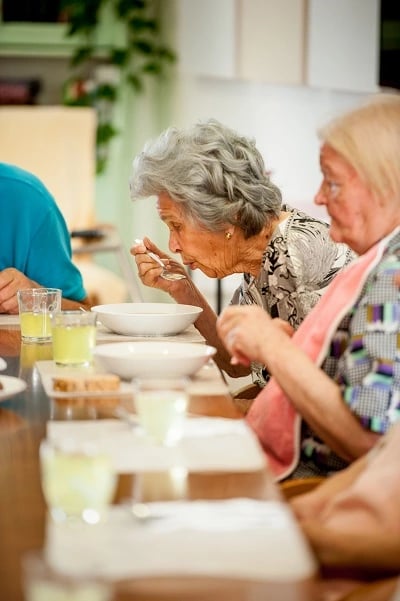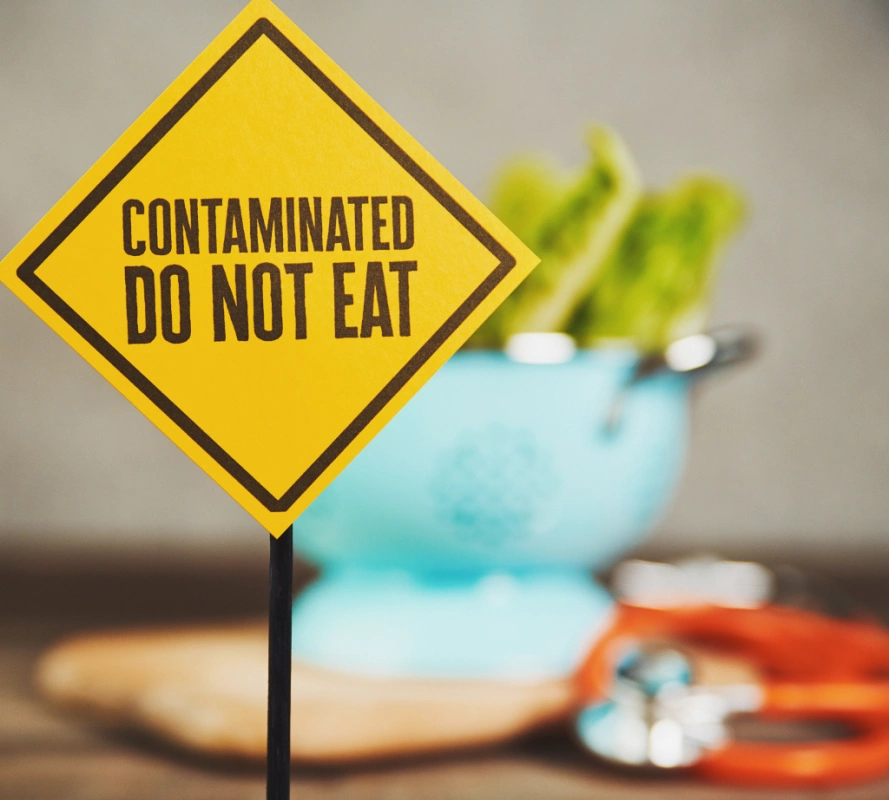
Food Safety in Canadian Retirement Residences

A recent CBC article investigated the amount of food safety violations in Canadian senior citizen homes and retirement residences - the results were shocking, with health code violations at privately-run residences in the city of Ottawa more than doubling over the last three years. With an average of around nine infractions per year, some residences had as many as 41 in just a three-year period. Senior citizens are one of the most vulnerable populations in regards to foodborne illness, and it’s important that foodservice workers in the senior service industry take proper precautions to ensure that these homes are safe for all.
The importance of food safety for seniors
Although all Canadians are susceptible to the effects of foodborne illnesses, senior citizens are among the highest risk group. Many Canadian seniors suffer from weakened immune systems or chronic illnesses, and food poisoning can lead to complications, serious illness, and long recovery times. Many of the food safety violations unveiled by CBC’s investigation revealed that up to one-third of these infractions were deemed to be “critical”, which includes things like improperly stored or handled raw meats, rodent or insect infections and contact, and contaminating food by mixing raw and cooked foods. These critical food safety infractions can lead to serious illness in seniors with weakened immune systems, including listeria, salmonella, and E. coli among others.
Food safety education and awareness
The most effective way to ensure that food service workers in retirement communities and senior citizen homes are following food safety guidelines and regulations is through raising their level of education and awareness. The best method of educating staff on food safety guidelines is through compulsory food safety training and classes, which are often made available online, like those offered by Food Safety Market, for increased ease of access and affordability. Food safety training will give staff members the necessary knowledge about guidelines and regulations, how to properly ensure that they are followed, what to do in certain situations, and will earn them the proper accreditation or certification needed.
Knowing how crucial a role they play in the overall health and safety of their elderly patrons is important to reiterate, as it can help to put the job into perspective and remind staff to be extremely careful the handling, storage, and preparation of food. Your staff should be reminded on a regular basis of who they are preparing food for, and how crucial it is that they take the proper precautions. Making sure that staff come to work prepared for their day and are awake, alert and prepared for their daily duties is also critical, as it will greatly reduce the number of mistakes made.
Food safety managers recommended for large operations
Some private care retirement living centres opt to hire a food safety manager who oversees the day-to-day activities of their team either in one building or across a region with multiple residences. Having a food safety manager to drive change and best practices can transform the operations of your food service team, helping to ensure that food safety guidelines and regulations are being strictly followed at all times. Hiring a food safety manager can be very beneficial for your institution and can help to ensure that no food safety violations are committed in your retirement home or senior citizens centre.
Do your research when looking for a retirement home
When deciding on a long-term care facility for yourself or your loved ones, it’s of the utmost importance that you properly research each location. Looking up past news stories about the facility or private company can give insight into suspicious activities or a lack of care in regard to health and food safety violations. You can often check the establishment’s record with the municipal government responsible for food safety inspections in your area. Your loved ones deserve the best care that they can get, and due to their already high-risk status, can’t afford to risk potentially fatal food poisoning that could have been easily avoided had the staff been properly trained and made aware of the proper guidelines and best practices.
When working with the elderly, it’s important that food safety regulations are closely followed. Doing so can prevent easily avoidable complications that come with food poisoning and can make your long-term care facility a more safe and reliable establishment for everybody. This can be done through a combination of raising awareness, ensuring proper training of all food service staff, hiring food safety managers to oversee operations, and doing your research before deciding on a facility.

